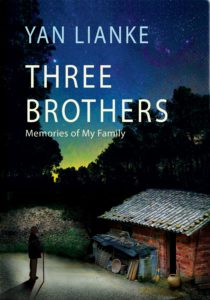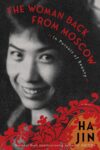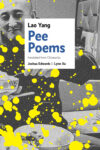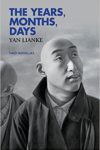
[Grove Press; 2020]
Tr. from the Chinese by Carlos Rojas
Chapter One of Yan Lianke’s, Three Brothers: Memories of My Family, explains that it was due to the suggestion of one of the author’s sisters that he decided to pen this memoir. Such a commonplace detail assumes greater significance when read within the context of the Cultural Revolution in 1960s and 1970s agrarian China. Yan makes abundantly clear that his childhood and adolescence constituted an uninterrupted lesson on how the adults in a family — here, Yan’s father and two uncles — protect, nourish, and sacrifice for their children, literally negotiating with Death itself for extra time with their young. If Yan’s memoir owes its existence to family, it is because every blessing in Yan’s life owed its existence to family, as Yan’s unflinching self-examination demonstrates plainly.
Yan’s early success in primary school was instigated by his rivalry with “Second Sister,” whose grades were better than his. Yan admits his early hatred for his sibling, a jealousy that prompted him to hide her book bag, watch as their mother beat his sister for losing it, and then disingenuously help her find it. Wasting no time in explaining away his early scheming, Yan shows himself as the undeserving recipient of Second Sister’s kindness. A few years later, when their father announced that only one of the two would be permitted to attend high school (the other would have to stay home to work the farm, for their elder sister suffered from a chronic illness and required constant care), Yan and his sister are momentarily speechless. The father leaves the two of them to sort it out, and after a few hours of separate deliberation, Second Sister tells Yan that she will stay home so that Yan can stay in school.
Such selflessness is not exceptional in Yan’s family. It is rather Yan’s puerile competitiveness that stands out amid an otherwise consistent pattern of familial sacrifice. Yan’s father worked the fields every day, rain or shine, and when the Revolution appropriated his cache of sweet potatoes and his family’s resources were reduced to nil, the father somehow found a means of continuing his backbreaking work. Yan’s First Uncle rose before dawn every day, accompanied by his young children, to cross an icy river, wading across it even in winter, to retrieve stones from a mountain. He then hauled those same stones back down the mountain and across that same river to sell, or else to use to build simple houses for his children when it was their turn to marry. And Yan’s Fourth Uncle initially seemed the most successful and even happiest of the three brothers. He left the village in Henan Province to work as a shift manager in a cement factory in the city Xinxiang, and his polyester clothing and pocket money evoked in Yan’s young mind a fantasy of “life.” (In a poignant digression, Yan distinguishes between “life” and “living.” “Life” is for those city-dwellers who have escaped the misery of physical labor, while “living” is the painful monotony that constitutes the sum of peasants’ existence.) Yet as a teenager, Yan went to work alongside Fourth Uncle in the factory, and there he learned that Fourth Uncle was even less happy than his brothers. For Fourth Uncle was one of the “bowed-heads,” a city-dweller term of derision for rural peasants who work in the city and send home their earnings. Fourth Uncle spent his adult life working tirelessly, sometimes covering multiple shifts with no break, so that his wife and children could survive. And for a few weeks every year, Fourth Uncle returned home on what city-dwellers assumed was vacation, but what in reality was even more strenuous physical labor, the annual harvest. Alienated both from home and from the city, Fourth Uncle’s retirement years were especially difficult. He found temporary solace in drink and mahjong, but otherwise found himself in the baffling predicament of being unable to enjoy the end of his days of labor.
All three brothers in this memoir struggled with their respective weaknesses. Yan’s father occasionally beat him, although Yan is quick to forgive these episodes as momentary fits of desperation amid a dependable backdrop of love for his children. First Uncle was a gambling addict who, on more than one occasion, lost several months’ worth of earnings after a bender, earnings that he and his children won through lugging stones across bone-numbingly cold water. Fourth Uncle was a functional alcoholic. That said, Yan’s gratitude toward all three men extends well beyond compassion for their weaknesses. For Yan is concerned with death in this arresting work, not only the death of loved ones, but of a whole moment in Chinese history that, for ever more young people, is incomprehensible and even non-existent. The desolation of the Cultural Revolution, disproportionately meted out on rural peasants like Yan’s family, is now a fading memory given China’s transformation into a consumer economy. Workers still suffer in China, let there be no mistake, but Yan frequently points out that what now is regarded as “suffering” was, in his childhood, the only existence that he and his family knew. Yan is thus writing to stave off the death of the collective memory of this time and these people. And as a peasant who was able to write himself out of the fields and into international celebrity, Yan poignantly shows that the most effective antidote to death is gratitude.
Joanna Demers is a writer of fiction and scholarly works about music and culture. Her most recent books are Anatomy of Thought-Fiction: CHS Report, April 2214, and Drone and Apocalypse: An Exhibit Catalog for the End of the World, both published by Zero Books. She is associate professor of musicology at the USC Thornton School of Music.
This post may contain affiliate links.







